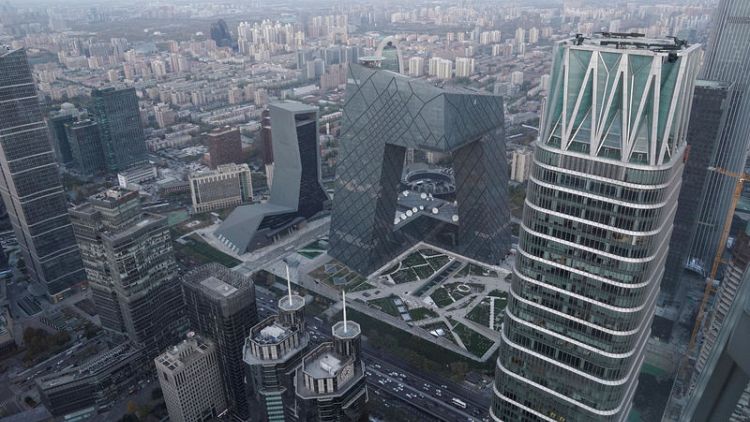BEIJING (Reuters) - China will keep its economic growth within a reasonable range in 2020, with more "forwarding-looking, targeted and effective" policies that also fend off risks, a top decision-making body of the ruling Communist Party said on Friday.
China's economic growth cooled to a near 30-year low of 6% in the third quarter, and could slip further in the fourth, but remains on track to meet the lower end of the government's full-year target of 6-6.5%.
China has committed to building a "moderately prosperous society" by the end of 2020. It is a target the country must achieve, state news agency Xinhua reported, citing a politburo meeting chaired by President Xi Jinping.
But the country remains locked in negotiations with the United States to ink an interim "phase one" trade deal to de-escalate a 17-month-long dispute that has led to tit-for-tat tariffs.
"We must ... be good at turning external pressures into a powerful driving force for deepening reforms and opening up," the remarks carried by Xinhua said.
The government will employ counter-cyclical tools, pursue supply-side reforms, meet anti-pollution targets and mitigate against systemic financial risk, the politburo said.
Beijing has launched a raft of economic support measures so far this year, including reductions in bank lending rates, tax cuts and more infrastructure spending, to ward off a sharp deceleration in the economy. Further steps to bolster growth are expected.
The politburo said China will adhere to a policy framework that keeps macro policies stable and micro policies more flexible.
Top leaders are due to map out more specific and detailed economic and reform targets and plans for 2020 during an annual Central Economic Work Conference later this month.
"In our view, policymakers will likely maintain a defensive easing stance, and lower the GDP growth target to 'around 6%' for 2020, which means they would not engineer massive easing to keep growth at or above 6%," analysts at Morgan Stanley wrote in a note on Friday.
They also expect more fiscal support to speed up infrastructure spending, with the annual quota of local government special bonds to be $100-125 billion higher than in 2019.
The politburo stressed that China's economy remains stable and the basic trend of long-term improvement will not change for the foreseeable future.
In a positive gesture for the U.S.-China trade talks, China said on Friday it will waive import tariffs for some soybeans and pork shipments from the United States.
(Reporting by Yawen Chen, Huizhong Wu and Judy Hua; editing by John Stonestreet and Christina Fincher)
